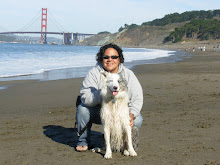Holiday Pet Hazards
While you are busy making your festive plans for Thanksgiving, Hanukkah, and Christmas, please don't forget to include your pets. The holidays are a time for giving, but there are some things you should not share with your furry friends. Once you know the hazards, a little precaution and prevention will make holidays a happy time for everyone.
Some of the more common holiday hazards include:
Bones: The holiday turkey or chicken will leave a lot of tantalizing bones, but don't feed them to your pet. Beware of steak bones, too. Small bones or bone chips can lodge in the throat, stomach, and intestinal tract.
Holiday plants: Holly and mistletoe are extremely poisonous when eaten. The lovely poinsettia may not be truly poisonous but its milky white sap and leaves can certainly cause severe gastric distress. With so many hybrid varieties available each year, the best approach is to keep the plants out of your pet's reach.
Electrical cords: Holiday lights mean more electrical cords for kittens and puppies to chew. Be sure you have cords secured and out of the way.
Candles: Lighted candles should never be left unattended and that is even more important if left at kitty's eye level or within puppy's chewing zone. An exuberant tail or a swat of a paw can turn candles and hot wax into an instant disaster. Anchor candles securely and away from curious faces and feet.
Pine needles: Check around holiday trees frequently. Ingested pine needles can puncture your pet's intestines.
Holiday tree: Make sure your tree is well secured. If you have a tree-climbing cat or large dog with a happy tail, anchor the top of the tree to the wall, using strong cord or rope. Preservatives often used in the water in a tree stand can cause gastric upsets, so be sure it is inaccessible or not used. Avoid sugar and aspirin additives in the water as well.
Ornaments: Sharp or breakable ornaments, dreidels, and even aluminum foil should be kept out of reach. String objects, especially tinsel and ribbons, are to be safeguarded at all costs. They are thin and sharp and can wrap around intestines or ball up in the stomach.
Stress and company: With everyone coming and going, watch out for open doors and sneaky pets. Make sure your pets have updated collars and tags on in case of escape. Microchipping your pet will also help if your pet escapes. All pets should have at least two forms of id on them at all times. Ask guests to keep an eye out for pets under foot and remind them that sometimes your normally friendly dog or cat may be less than willing to deal with enthusiastic children and rooms full of unfamiliar people. Provide a special quiet place with a blanket and fresh water for your pets to retreat to when the festivities get too stressful.
# Before traveling with your pets, make sure they have all required vaccinations and health papers. If they are on medications, have enough to last through the trip plus an additional 5 day supply to be safe.
# When traveling by air, be aware of airline restrictions regarding outside temperature and number of animals allowed per flight. Someone may have already booked a pet, and there are no more allowed. Each airline handles pet differently, please contact your carier for more information.
# Remember that even the most gentle and trusting pet may bite when in pain. Train your dog to a basket muzzle by placing treats in the bottom of it. Basket muzzles provide protection for you and anyone else helping with your pet and allow them to pant and breathe easily. You can also use a soft towel or cloth strips and remove it as soon as possible so the pet can breathe more easily. When dealing with cats simply placing a thick towel over their head may calm them down and decrease the chances of being bitten.
# Too many treats during the holidays can expand your pet’s waist line, so monitor the amount of goodies and remember that food is not love and extra attention will give you the same reaction as a treat.
Subscribe to:
Post Comments (Atom)





No comments:
Post a Comment